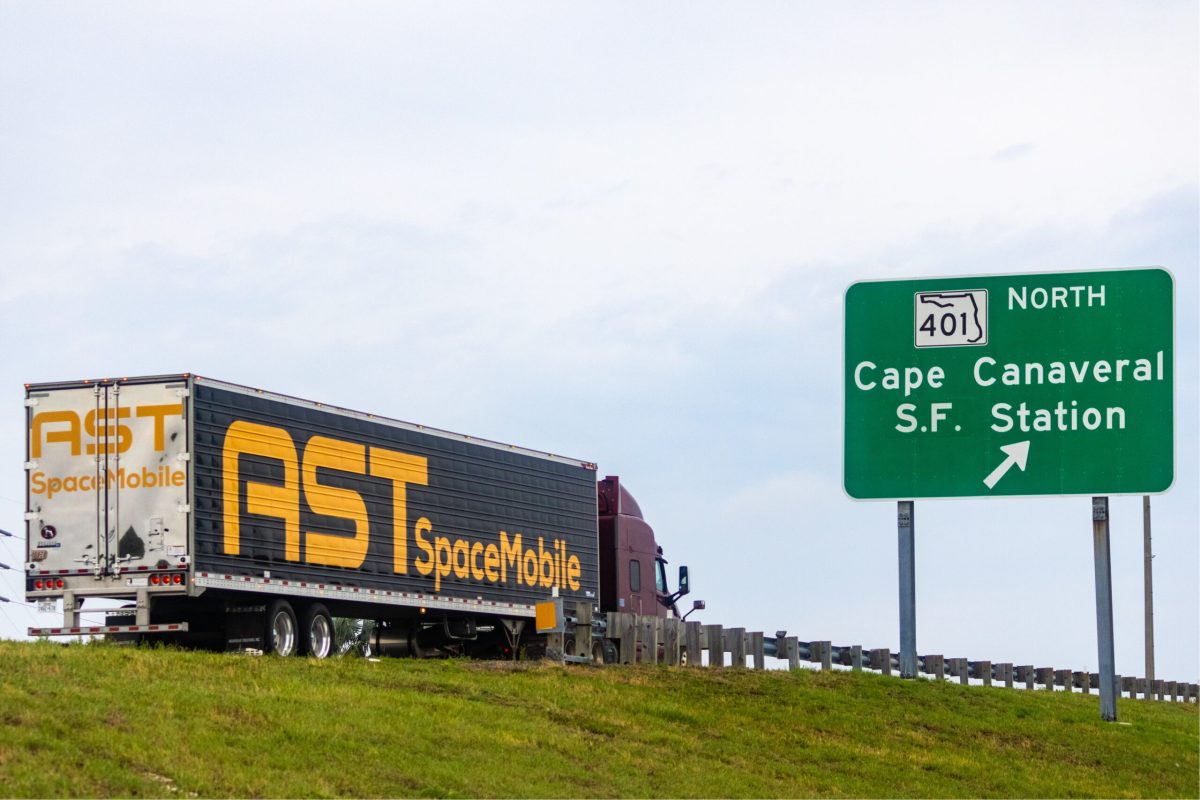TAMPA, Fla. — AST SpaceMobile has started producing parts for 17 larger direct-to-smartphone satellites after taking advantage of its soaring stock price to raise more capital for the broadband constellation.
The venture said it had $288 million in cash as of June 30, up 35% on the prior quarter despite production costs, thanks to an investment from Verizon and selling shares that rocketed after the telco joined U.S. rival AT&T earlier this year in partnering with the satellite operator.
Abel Avellan, AST SpaceMobile’s CEO, said in an Aug. 14 earnings call with investors that the first of the 17 Block 2 BlueBird satellites would be ready to launch in the first quarter of 2025.
Depending on the launch configuration and the rocket used, he said at least four Block 2 BlueBirds could be deployed on a single mission to low Earth orbit (LEO).
A Block 2 BlueBird would be about 223 square meters in size, significantly larger than each of the five Block 1 BlueBirds due to launch together next month on a Falcon 9 with solar arrays spanning 64 square meters.
AST SpaceMobile intends to equip the sixth and follow-on Block 2 BlueBirds with chips developed in-house that would enable 10 gigahertz of processing bandwidth per satellite, ten times the capacity of a Block 1 BlueBird.
The company declined to disclose the performance of a Block 2 BlueBird without the custom chipset, which is also designed to support up to 120 megabits per second (Mbps) peak data rates.
Block 1 and 2 BlueBirds are based on AST SpaceMobile’s two-year-old BlueWalker 3 prototype in LEO, which the venture said has achieved more than 21 Mbps download speeds during tests with standard smartphones.
While five Block 1 BlueBirds would be enough to cover the entire United States from LEO, the company has said it needs 45-60 satellites for continuous text, voice, and data coverage in the country. AST SpaceMobile ultimately plans global coverage via partnerships with other mobile operators.
Scaling up
AST SpaceMobile is “getting close to 95% vertical integration” for its satellites, Avellan said during the earnings call, helping the Texas-based company reduce costs and accelerate production speeds.
“We have spent over seven years and over $1 billion investment to get to this point, along the way generating over 3,400 patent and patent-pending claims,” he said.
Andy Johnson, AST SpaceMobile’s recently appointed chief financial officer, said the company is working to get more prepayments from cellular partners for the space-based service, which would enable them to keep subscribers connected when cell towers are out of reach.
He said the company is focusing on getting prepayments and financing from state-backed export credit agencies to cover future capital needs, rather than selling more equity.
The Federal Communications Commission granted AST SpaceMobile conditional approval Aug. 5 to deploy and operate the five Block 1 BlueBirds slated to launch in the first half of September.
However, AST SpaceMobile said talks with the FCC are ongoing after the regulator deferred deciding whether to grant the company permission to test its services with the cellular frequencies it hopes to use in the United States.
The FCC also deferred a decision on AST SpaceMobile’s plans to operate an additional 243 satellites to improve coverage.
Along with direct-to-device competitors SpaceX and Lynk Global, AST SpaceMobile is also awaiting permission to provide commercial services to standard smartphones in the United States.
AST SpaceMobile shares closed up 50.7% to $31.36 Aug. 15 on the NASDAQ.
